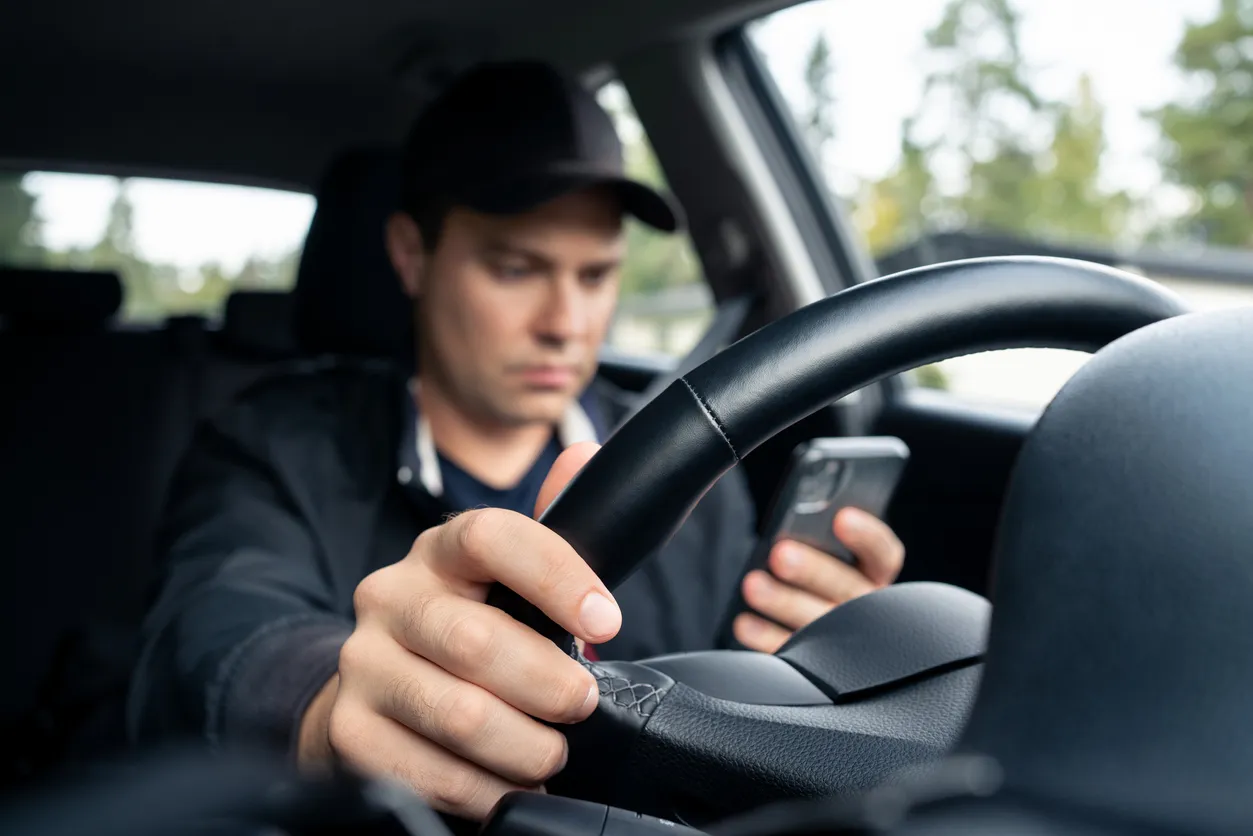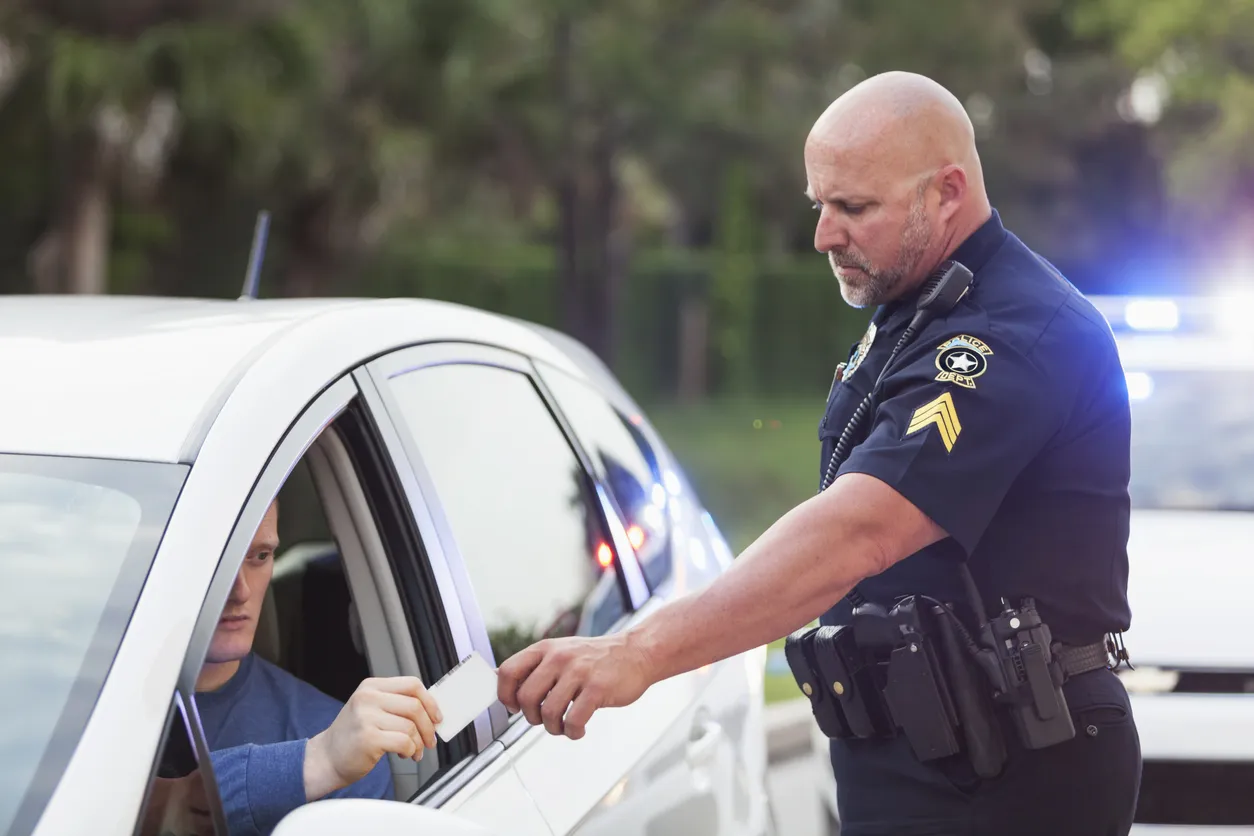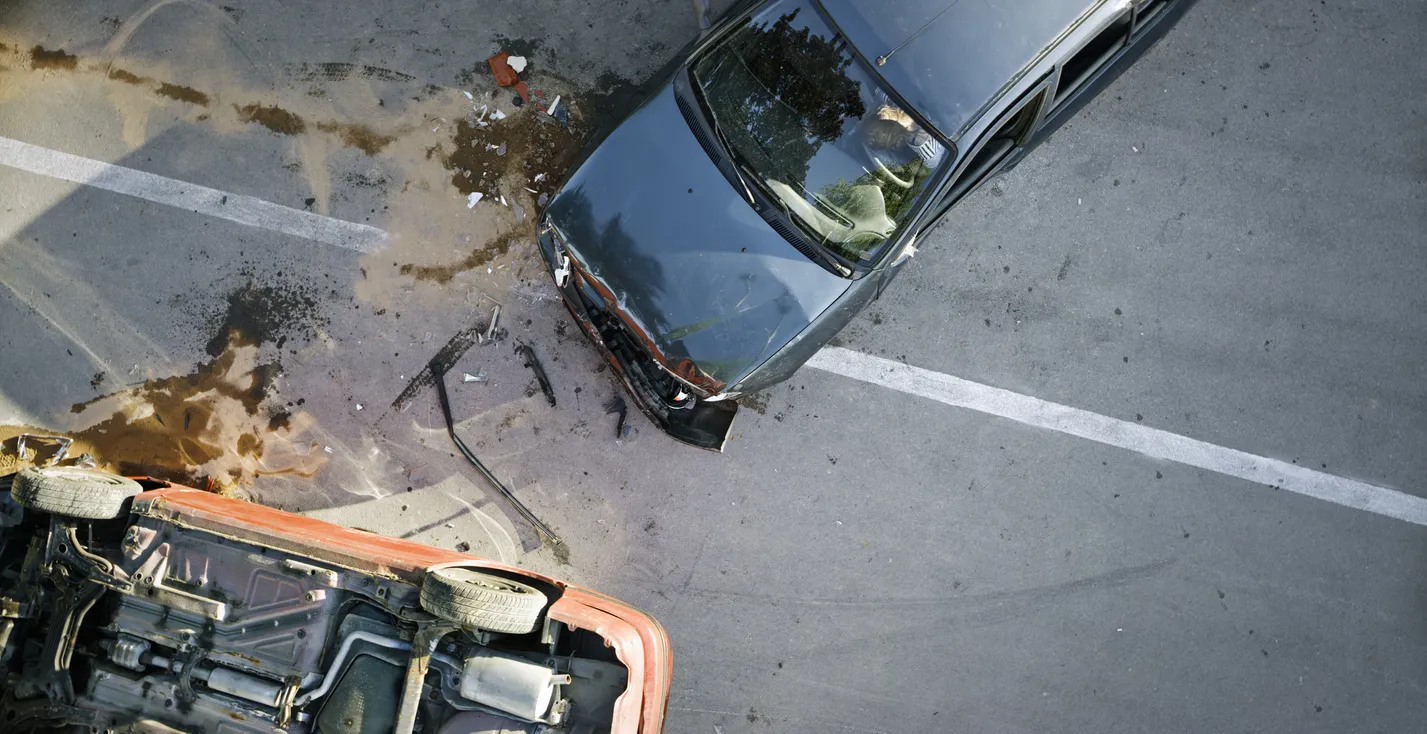Why Is Texting and Driving Dangerous?

With the rise of text messaging, more people are texting and driving than ever before. Many people have trouble waiting to respond to text messages until they're finished driving. Unfortunately, texting while driving down the road is a huge distraction, and it puts you and your passengers in danger every time you do it. If you stop paying attention to the road to watch a text, you could be ignoring the road for as long as five seconds.
In that time, you would travel a full football field when driving at 55 miles per hour without ever seeing where you were going. Imagine how much can go wrong over the distance of a full football field, and then imagine driving through a football field with your eyes closed from beginning to end. That is exactly what you're doing when you're driving and texting. When you think about the problem in that way, it's easy to see why it's so dangerous and why so many states have made the activity illegal.
Texting and Driving Statistics 2024
Texting and driving remains a significant hazard on U.S. roads as of 2024. Data indicates that approximately 1.6 million car accidents each year are attributed to texting while driving, with over 3,000 of these incidents resulting in fatalities. Despite the known risks, many drivers, especially younger ones, continue driving and texting. A concerning 39% of high school students reported texting or emailing while driving. This group is also more likely to be involved in fatal crashes due to distracted driving compared to other age groups.
To combat the issue, nearly all states (49 out of 50) have implemented bans on texting while driving, with penalties that can be quite severe, including significant fines and even felony charges if serious injuries or deaths occur.
How Many Accidents Are Caused By Texting and Driving
It is nearly impossible to say how many distracted-driving accidents are caused by texting and driving today. According to police reports, approximately 9% of all distracted driving incidents are caused by texting today. That means that a significant number of accidents are caused by texting while driving.
When looking at reported accident figures, you can break down the number of accidents caused by texting to around 30,000 incidents in the US annually. This figure is only for reported accidents, though, and we know there are many more accidents that go unreported each year; some of those accidents were also caused by texting and driving.
Is Texting and Driving Illegal?
 Nearly all of the states in the United States have laws prohibiting texting and driving - the exceptions of Montana and Missouri. This means that you can receive a fine or have your license taken away for texting while you're driving a vehicle. There are different levels of severity depending on the state that you're in, but it's safe to say that if you're texting while driving down the road, you are breaking the law in nearly every state throughout the United States.
Nearly all of the states in the United States have laws prohibiting texting and driving - the exceptions of Montana and Missouri. This means that you can receive a fine or have your license taken away for texting while you're driving a vehicle. There are different levels of severity depending on the state that you're in, but it's safe to say that if you're texting while driving down the road, you are breaking the law in nearly every state throughout the United States.
Most police officers will not be able to pull you over for texting and driving only since it can be difficult to see as you drive past. However, if a police officer notices an open phone within easy access of the driver once pulled over, the officer may get a court order to go through the texts to see if any were sent within minutes of pulling the driver over. Those court orders typically allow the police to look back as far as 180 days.
Texting and Driving Laws
Texting and driving laws are primary laws in all but five states. When a driving violation is a primary law, it can be the sole reason that you're pulled over by a police officer. That means you can be pulled over just for driving and texting. In the three states that have texting and driving listed as secondary laws, the officer must pull you over for something else first before being able to issue you a ticket for texting and driving.
How Much Is a Texting and Driving Ticket
If you're pulled over for texting and driving, you can be charged with a ticket and a fine. The fine that's associated with the offense is different depending on the state that you're in and whether it is your first, second, or third offense. You should expect to pay somewhere between $25 and $500 for being pulled over for texting while driving, and it's rare to pay anywhere near $500 for your first offense in most states. However, the exception is Alaska, where texting and driving can lead to a $10,000 fine, plus it could lead to up to a year in jail. The fines for a first-time offense are usually pretty small, but not always.
How to Prevent Texting and Driving
If you've ever made the mistake of texting while driving, you put yourself at risk of getting a ticket and getting into an accident. It's a bad idea to text and drive, and the activity will likely eventually end with something bad. That's why you should commit to putting away your cell phone while driving. Always stash your cell phone while driving around, and you won't be tempted to read text messages as they come in.
Another way to prevent texting while driving is to set up your phone to avoid giving you text messages until you're finished driving. There are special apps that help you avoid distractions while you're driving down the road. If you have a hard time ignoring messages when you're driving, one of these tools will help you ignore those messages more effectively until you're stopped.
By taking small steps like putting away your cell phone or having your text messages blocked while you are driving down the road, you can remove the temptation to text and drive and keep yourself safe along the way. If you don't text and drive, you won't be at risk of getting a ticket, and you will protect yourself from needless accidents each year too.
Avoid Buying Cars Involved in Texting and Driving Accidents
 Texting and driving is a major cause of accidents each year, but it's just one of the causes of accidents. Many vehicle owners get into accidents each year, and some of those owners sell their vehicles after getting into serious accidents. This is why a car history report is a useful tool if you're shopping for a used vehicle. The report can help you avoid vehicles that were in serious accidents so you don't get stuck with major structural issues that you otherwise wouldn't have known about.
Texting and driving is a major cause of accidents each year, but it's just one of the causes of accidents. Many vehicle owners get into accidents each year, and some of those owners sell their vehicles after getting into serious accidents. This is why a car history report is a useful tool if you're shopping for a used vehicle. The report can help you avoid vehicles that were in serious accidents so you don't get stuck with major structural issues that you otherwise wouldn't have known about.
FREE Vehicle Search
- Accidents
- Problem Checks
- Title Records
- Recalls
- Values
- Specs
-
InfoPay, Inc. (dba GoodCar) is an Approved NMVTIS Data Provider
-
-

















































